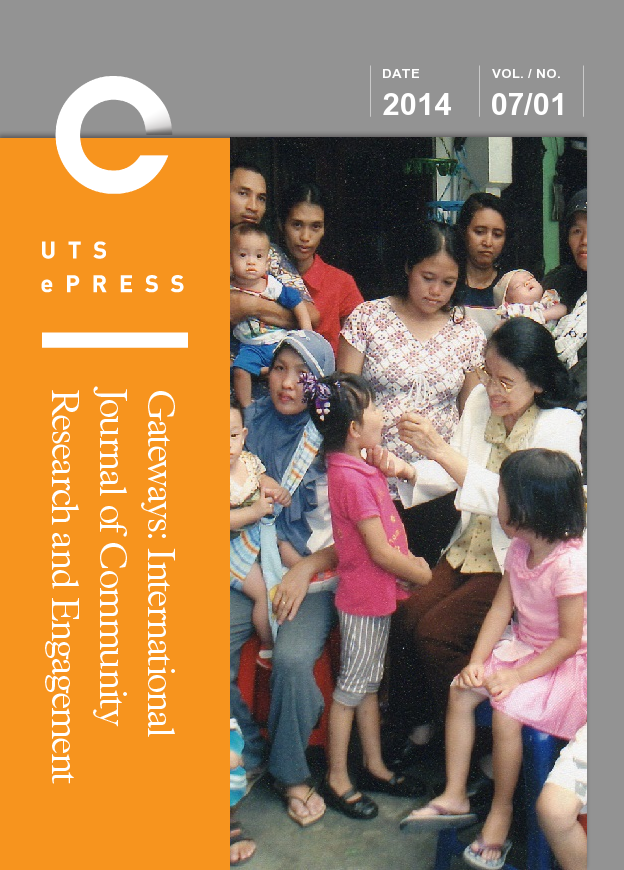What have we learnt? A year on from the first UK Community Partner Summit
Main Article Content
Abstract
Following an observed need to build community partner infrastructure and support to enhance community-university partnerships, a successful bid was made to the UK Arts and Humanities Research Council. This funding provided an opportunity for community partners to come together with engaged academics at the first ever UK Community Partner Summit. They resolved to set up a community partner network to help build capacity for effective community-university partnerships, and to influence the policy environment which supports this work. This article reflects on the activity of the working group in seeking to establish the network, and introduces some of the concepts that have proved critical to its development. Drawing on a wealth of perspectives from a range of sources including academic and grey literature, community partner experiences, and international work, we open up some of the challenges that we have faced, and explore some of the implications of our first year’s work together. We reflect on the time it takes to establish any form of network, the need to be clear about definitions and boundaries, and the challenge of changing cultures. We conclude that the progress with the network to date is encouraging, and we look forward to building on our learning thus far, to develop stronger community-university partnerships of the future.
Keywords: community partner infrastructure and networks, partnership resilience, community-university partnership
Article Details
Issue
Section
Authors who submit articles to this journal from 31st March 2014 for publication, agree to the following terms:
a) Authors retain copyright and grant the journal right of first publication with the work simultaneously licensed under a Creative Commons Attribution License that allows others to share and adapt the work with an acknowledgement of the work's authorship and initial publication in this journal.
b) Authors are able to enter into separate, additional contractual arrangements for the non-exclusive distribution of the journal's published version of the work (e.g., post it to an institutional repository or publish it in a book), with an acknowledgement of its initial publication in this journal.
c) Authors are permitted and encouraged to post their work online (e.g., in institutional repositories or on their website) prior to and during the submission process, as it can lead to productive exchanges, as well as earlier and greater citation of published work (See The Open Access Citation Advantage Service). Where authors include such a work in an institutional repository or on their website (ie. a copy of a work which has been published in a UTS ePRESS journal, or a pre-print or post-print version of that work), we request that they include a statement that acknowledges the UTS ePRESS publication including the name of the journal, the volume number and a web-link to the journal item.
d) Authors should be aware that the Creative Commons Attribution (CC-BY) License permits readers to share (copy and redistribute the work in any medium or format) and adapt (remix, transform, and build upon the work) for any purpose, even commercially, provided they also give appropriate credit to the work, provide a link to the license, and indicate if changes were made. They may do these things in any reasonable manner, but not in any way that suggests you or your publisher endorses their use.
For Volume 6 (2013) and before, the following copyright applied:
Articles published by UTSePress are protected by copyright which is retained by the authors who assert their moral rights. Authors control translation and reproduction rights to their works published by UTSePress. UTSePress publications are copyright and all rights are reserved worldwide. Downloads of specific portions of them are permitted for personal use only, not for commercial use or resale. Permissions to reprint or use any materials should be directed to UTSePress.
